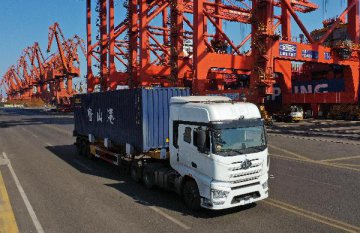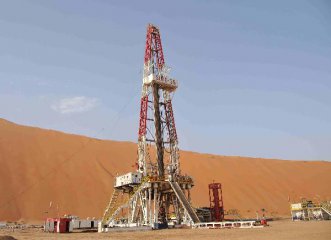
KUWAIT CITY, May 26 (Xinhua) -- The U.S. slapping of additional tariffs on Chinese imports is typical economic bullying and will not last, said a Kuwaiti economy expert.
The tariff hikes could inevitably damage the economy of both countries, Abdullah Al-Salloum told Xinhua in a recent exclusive interview.
Sectors to be affected are those directly included in the new tariffs as well as those related, added the economist.
The American economic bullying, he said, also has clear impact on the global economy, with the Middle East to be negatively affected.
In the name of protecting domestic industries, the United States has placed steep tariffs on billions of U.S. dollars' worth of products from its major partners, including the EU, Canada, China and Japan, raising trade tensions around the world and shaking the foundation of the global trading system.
In the latest flare-up of its trade tensions with China, Washington increased additional tariffs on 200 billion U.S. dollars' worth of Chinese imports from 10 percent to 25 percent earlier this month, and threatened to raise tariffs on more Chinese imports.
In response, China has announced that it will raise additional tariffs on a range of U.S. imports from June 1 and "will fight to the end."
Beijing said its response is aimed not only at safeguarding its own rightful interests, but also safeguarding the norms of international relations and protecting the free trade system.
"I believe that China is capable of overcoming this crisis through its economic and political decisions at the current and future stage," said the Kuwaiti economist.
Salloum added that globalization has created a clear perception among entrepreneurs that China is a safe place for production, especially as production standards have been improved in the country and Chinese products are no longer seen as second-class.
Citing Apple -- whose products are designed in California and assembled in China -- as an example, he pointed out that China has become the first destination of big production in all countries of the world.
"This is due to Chinese R&D (research and development), and the confidence of the U.S. market to move its factories to it," he said.





















Latest comments